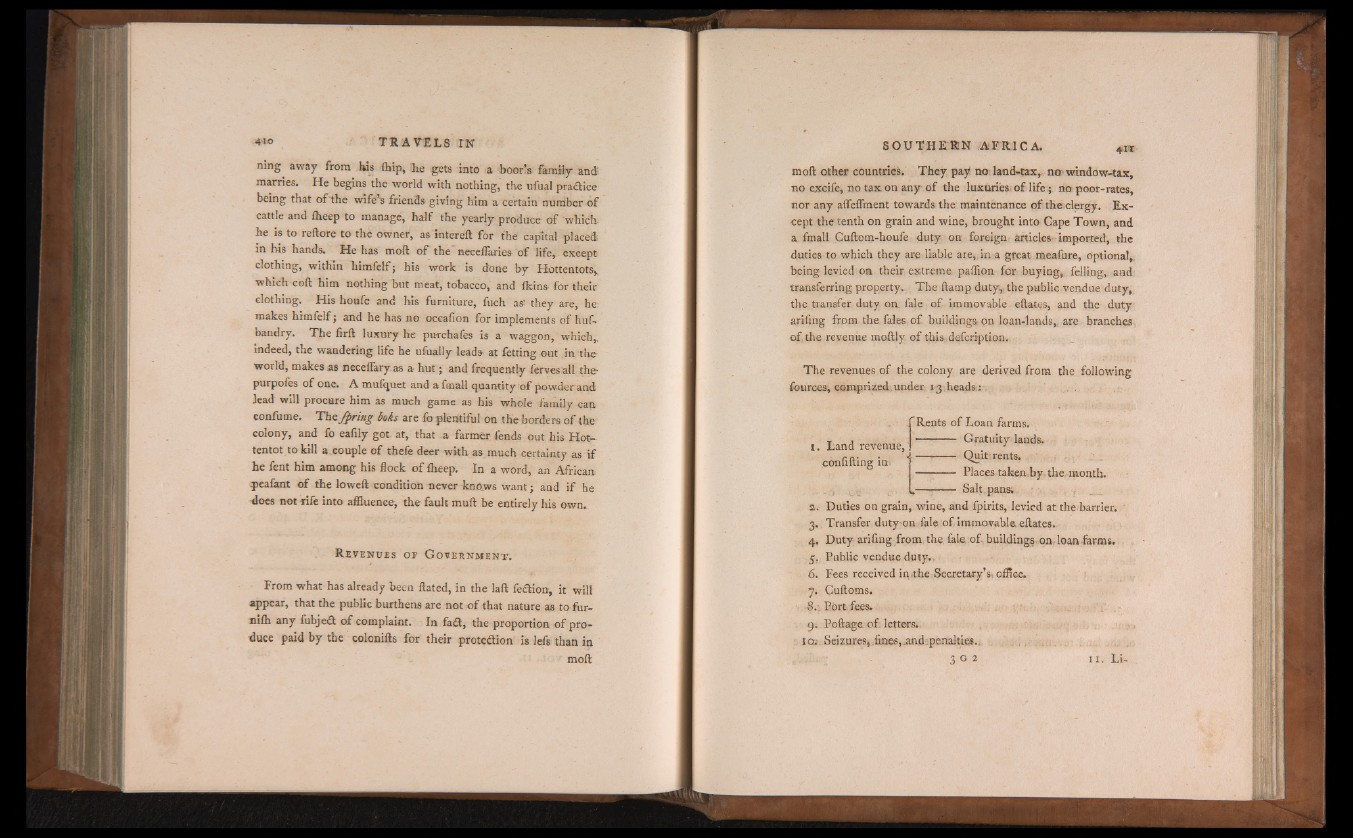
ning away from his fhip, he gets into a boor’s family and
marries. He begins the world with nothing, the ufual praitice
being that of the wife's friends giving him a certain number of
cattle and iheep to manage, half the yearly produce of which-
he is to reftore to the owner, as intereft for the capital placed
in his hands. He has moil o f the* neeeffaries of life, except
clothing, within himfelf; his work is done by Hottentots*
which coil him nothing but meat, tobacco, and fkins for their
clothing. His houfe and his furniture, fuch as they are, he:
makes himfelf; and he has no occafion for implements of husbandry.
The firft luxury he purchafes is a waggon, which,,
indeed, the wandering life he ufually leads at fetting out in the
world, makes as neceflary as a hut; and frequently ferves all the-
purpofes of one. A mufquet and afmall quantity of powder and
lead will procure him as much game as his whole family can
eonfume. The Jpring bobs are fo plentiful on the borders of the
colony, and fo eafily got at, that a farmer fends out his Hottentot
to kill a ,couple of thefe deer with as much certainty as if
he fent him among his flock of iheep. In a word, an African
peafant of the loweft condition never knows want; and if he
ttoes not rife into affluence, the fault mull be entirely his own.
R e v e n u e s o f G o v e r n m e n t .
From what has already been ftated, in the lafl feilion, it will
appear, that the public burthens are not o f that nature as to fur-
nifh any fubjeft of complaint. In fadt, the proportion of produce
paid by the colonifts for their protection is lefs than in
moil
moil other countries. They pay! no: land-tax, ntr window-tax,
no excife, no tax on any of the luxuries of life ; no poor-rates,
nor any affeflment towards the maintenance of the clergy. Except
the tenth on grain and wine, brought into Cape Town, and
a fmall Guflom-houfe duty on foreign articles- imported, the
duties to which they are liable are,, in a great meafure, optional,,
being levied on their extreme paffion for buying, felling,. and
transferring property. , The flamp duty,, the public vendue duty,
the transfer duty on: fale of immovable, eftates, and the duty
arifing from the fales of buildings on loan-lands, are branches
of the revenue moftly of thisdefcription.
The revenues of the colony are derived from the following
fources^ comprized under 13. heads ;
t . Land revenue,
confifting in.
Rents of Loan farms.
------- Gratuity lands.
Quit-rents.
--------- Places taken.by the month.
,--------- Salt pans»
а. Duties on grain, wine, and fpirits, levied at the barrier.
3., Transfer duty on iale of immovable,eftates.
4. Duty arifing from the fale, of-buildings on-loan-farms.
5. Public vendue duty..
б. Fees received in.the Secretary’s, office.
7. Cuftoms.
-S., Port fees»
9. Poftage of; letters».
I os. Seizures, .fines, .and »penalties..
3 g 2 11. Li